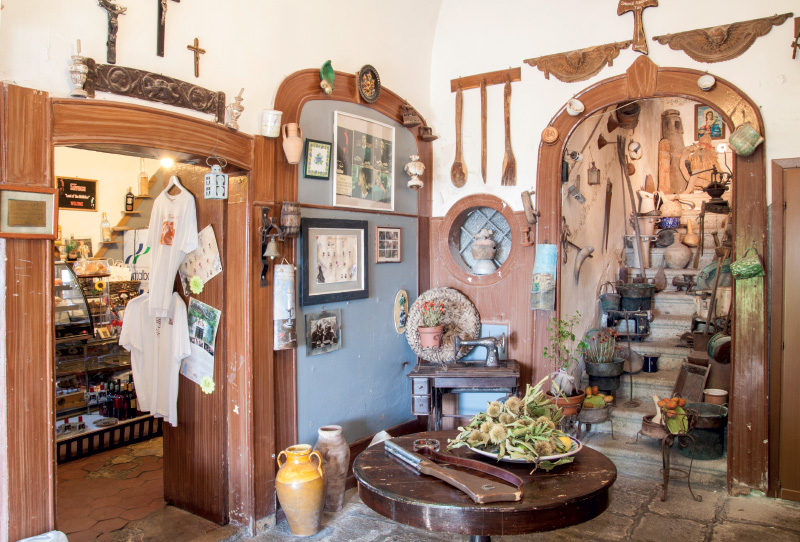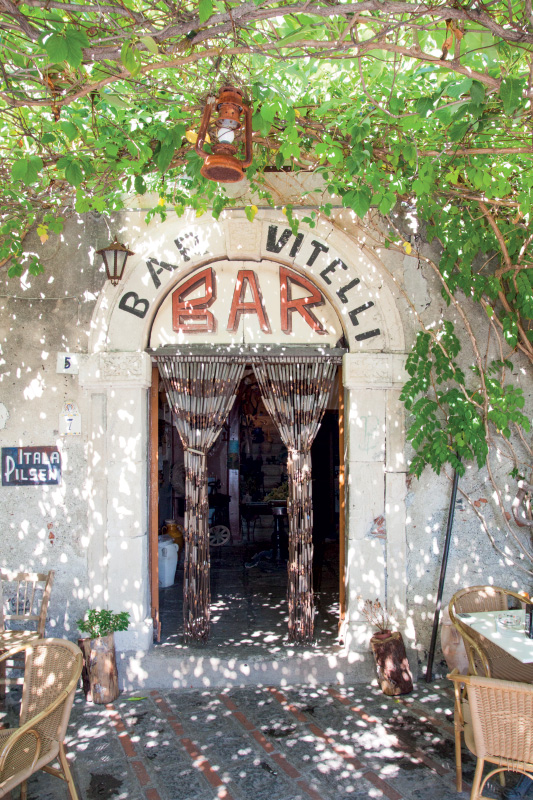In Savoca, few kilometres from Taormina, one of the most beautiful villages of Italy, you cannot but visit the historical Bar Vitelli. From the picturesque Fossia square, you look out onto the Palazzo Trimarchi from the 17th century, which hosts the shop that shaped the history of the Sicilian village since 1963. After a long series of hairpin turns, we feel almost out of context, catapulted in a place where time stopped. No cars, semi-desert roads and a brushed wooden sign shining on the building’s façade: Bar Vitelli, while the gaze at our back gets lost in the valley cut by the glimpse of the Gulf of Taormina. Lorenzo Motta, nephew of Mrs Maria, who is known as the one that made the history of Savoca, welcomes us in the small veranda under a pergola. He talks with great admiration about her and tells us some of her anecdotes. The one that strikes me most is the anecdote about coffee: she also served the sugar bowl and asked every guest “how much sugar?”, pouring and mixing the coffee in cup. During our chat, he makes us serve lemon granite, with the citrus fruits tasting like pulled out “rà maccia” (from the tree), accompanied by “zuccarate”, typical local biscuits. While he’s telling me about the history of Bar Vitelli, there’s the soundtrack of “The Godfather” by Francis Ford Coppola in the background. Actually, the American director turned this small gem into a going and coming of tourists and visitors from all over the world. Indeed, the bar is the emblem of the small hamlet hosting only 700 inhabitants, above all for its cinematographic meaning.
In 1971, Ford Coppola comes to Sicily, to Corleone, to shoot a movie. After having put together the set, he is asked to pay out a fee. Production does not accept this diktat and decides to move the location. It happens to be that one of the producers of the film “Godfather Part I” actually is a cousin of Mrs Maria, who asks Coppola to greet her on his behalf. The director of the Godfather keeps his promise and as soon as he arrives in Savoca and at the Bar Vitelli, he falls in love with those places, where he stays for about two months to shoot the film that made the history of international cinema. Many object and also pictures of the film production as well as many small items and ornaments that recall proof of past traditions are exposed in the bar. Palazzo Trimarchi is in restoration stage and thus, those places will soon have even a hotel and a wine cellar, where Sicilian sparkling wine can be tasted.







